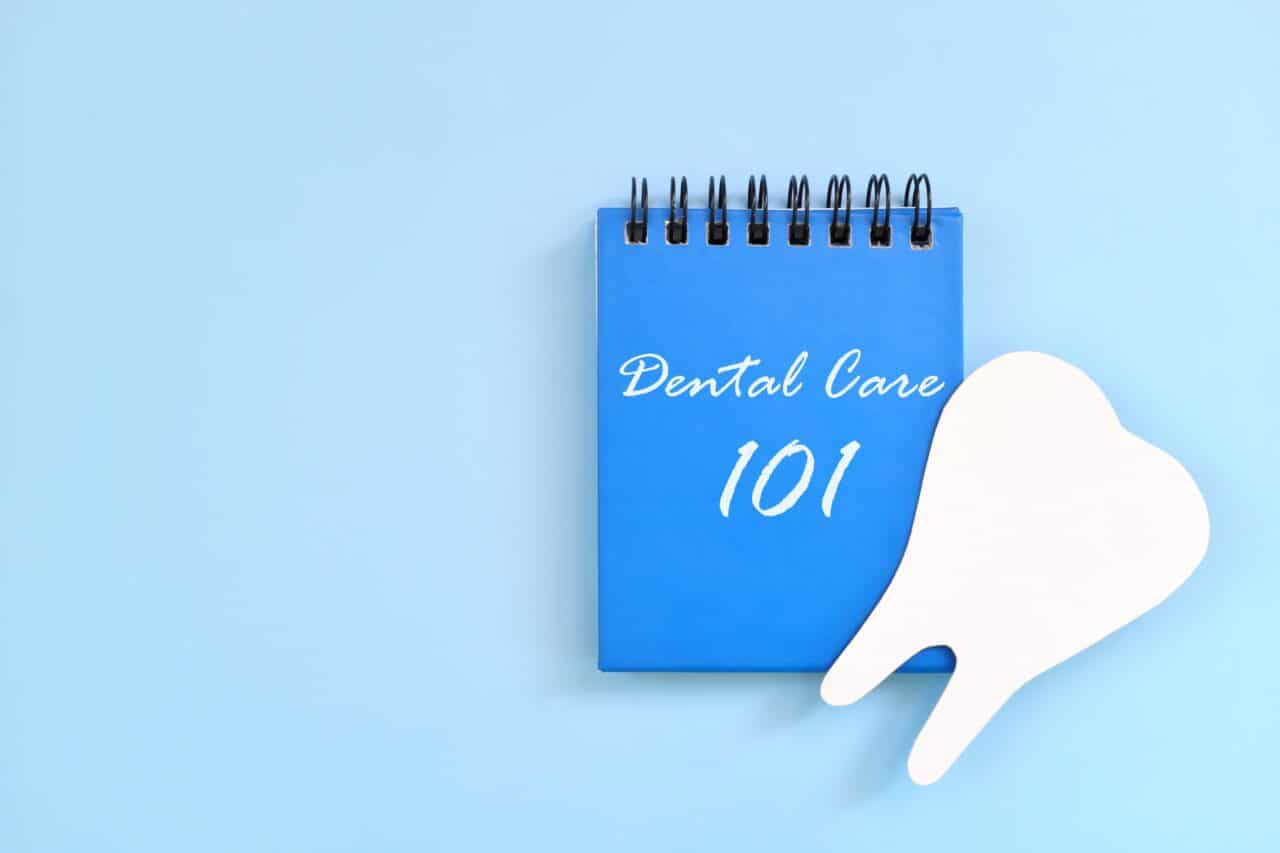May is National Smile Month, and we’re celebrating by sharing ways you can maintain a healthy smile or bring one back to your face! Achieving healthy teeth takes a lifetime of care. Even if you’ve been told you have nice teeth, taking the proper steps to care for them and prevent problems is crucial. This involves getting the correct oral care products and being mindful of your daily habits.
At Asheville Dental, our primary purpose is to inform patients about a broad spectrum of oral care matters because we realize people have questions that they may be too shy to ask. We encourage you to talk to us if you have questions we don’t cover here or elsewhere on our blog. Here are some great tips from our team:

What You Should Know About Implant Dentistry
Whether you’re missing one tooth or all of your teeth, dental implants are the most natural way to regain your smile. Dental implants don’t decay, and they have the potential to last a lifetime. Some people may think that because this procedure involves implanting a prosthesis into the jaw bone, it’s a complicated process. However, this is a routine surgery with a large success rate. We strongly believe in the advantages of technology, including using CT scans of your jaw to ensure accurate placement of your implants. We offer a variety of implant procedures. Don’t hesitate to give us a call to arrange a free consultation about dental implants!
Even if you’ve been told you have nice teeth, taking the proper steps to care for them and prevent problems is crucial.
How Do I Know If I’m Experiencing a Dental Emergency?
Emergencies can happen day or night, so staying prepared is wise. We want to ensure our patients are well cared for—in and out of our practice. Here is a list of common signs and immediate actions to take:
- Toothache. Begin by thoroughly cleaning around the sore tooth. Rinse the mouth using warm sea salt water to remove any food trapped between the teeth. DO NOT use aspirin on the aching tooth or gum. This myth for relief can lead to chemical burns. In the event of facial swelling, apply a cold compress to the area. For temporary pain relief, acetaminophen and ibuprofen are recommended.
- Cut or bitten tongue, lip, or cheek. Apply ice to any bruised area. If any area is bleeding, apply a firm (but gentle) pressure with sterile gauze or a clean cloth. Note: if the bleeding does not stop with pressure or continues after 15 minutes, please go to an emergency room.
- Broken braces and wires. Only remove the broken brace or wire if it can come out easily. If it is stuck or painful to remove, cover any bulging edges with wax, cotton balls, gauze, or chewing gum. DO NOT remove any wire caught in the gums, cheek, or tongue. See one of our dentists immediately. Note: emergency attention is usually not required for loose or broken appliances that cause no discomfort.
- Broken tooth. Rinse the area with warm water and put a cold compress over the facial area of the injury. Be sure to recover any broken tooth fragments and get immediate dental attention.
- Knocked out a permanent tooth. Recover the tooth, making sure to hold it by the crown (top) and not the root (bottom). Rinse, but do not clean or handle the tooth more than necessary. You can reinstate the tooth in the socket and hold it in place using a clean gauze or cloth. If it can not be reinserted, carry it in a cup containing milk or water. Time is essential, so it’s best to see one of our dentists immediately.

What Should I Know About Root Canals?
A root canal is a procedure that treats a severely infected tooth. During the treatment, the nerve and pulp of the tooth are removed. When that’s complete, the dentist cleans up the interior of the tooth and seals it up to prevent further infection. There are several reasons for infection in the tooth pulp, including severe tooth decay, trauma to the tooth, recent dental procedures, large fillings, and cracks or chips in the teeth. Here is a list of signs of infection severe enough that may warrant a root canal:
- Serious tooth pain when eating or when you apply pressure on the area
- General pain and sensitivity to hot or cold that lingers
- A small, pimple-like bump on the gums near the discomfort
- Darkening of the tooth
- Tenderness or swelling in the gums or the area of pain
At Asheville Dental, our primary purpose is to inform patients about a broad spectrum of oral care matters because we realize people have questions that they may be too shy to ask.
When Should I Get Help for Dry Mouth?
Occasional dry mouth, especially this time of the year when you’re enjoying the warm weather, isn’t uncommon. Drinking liquids, particularly water, ensure you stay hydrated. But, if you’re getting a dry mouth more frequently, that could indicate a larger problem. Dry mouth, known as “xerostomia,” happens for reasons other than thirst. Sometimes, it’s the result of nerves, anxiety, and stress. Some medications such as antihistamines, antidepressants, and certain analgesics cause dry mouth. Whatever the reason, it means you’re not producing enough saliva, which is critical to your oral health. If you have difficulty chewing, a sticky sensation in the back of your throat, or difficulty speaking, any of those are possible indicators that it’s time to make an appointment with your dentist about your dry mouth symptoms.

Are Over-The-Counter Whitening Products Safe?
Teeth whitening is a hot topic in the dentist’s office and online. Various over-the-counter (OTC) teeth whitening products have gone viral thanks to popular social media accounts. The main concern is that the influencers with those pearly white smiles likely didn’t use the product they are promoting. Instead, influencers rely on professional whitening services to get their smiles camera-ready. OTC products have limited effectiveness at best, and they certainly won’t provide results promptly. Some of the products have caused real damage to teeth and gums. Teeth sensitivity is among the top complaints associated with OTC products. It’s best to have your teeth whitened professionally, either in-office or with at-home treatments provided by your dentist.
We encourage you to talk to us if you have questions we don’t cover here or elsewhere on our blog.
At Asheville Dental, we want to ensure our patients are safe and healthy regarding their oral and overall health. Contact us today and let us know how we can help!





